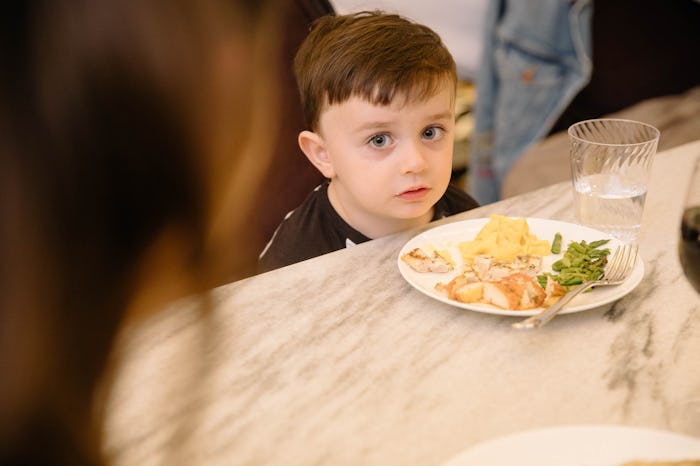Life

Here's What Happens To Your Child's Brain When They Hear "No"
Children are fascinating, complex human specimens seemingly created to get on our every last nerve. In fact, testing boundaries is a developmental milestone all children reach; one you, as a parent, are both excited and exhausted to witness. But perhaps the most fascinating part of your child gaining independence and forming their sense of self, is what happens to your child's brain when they hear "no."
Dr. Dan Siegel, clinical professor of psychiatry at the UCLA School of Medicine and the founding co-director of the Mindful Awareness Research Center at UCLA, tells Mindful.org that there are actually two types of brain states your children might utilize: a "yes" brain" state and a "no" brain state. The "yes" kids go through life with a positive outlook, while the "no" kids often shut down emotionally. In other words, a "yes" brain state will "approach life with all of these positive features versus a 'no brain' state, which is created when we feel threatened and we shut down." If your child hears "no" repeatedly, learning new things or being open to new experiences can prove more difficult than if they were encouraged via "yes" statements.
Dr. Siegel goes on to explain there are four elements of a "yes" brain that are crucial to keeping the line of communication open in children (yes, even when, as a parent, you're tired or frustrated). Those elements are: balance to help kids embrace the emotional experience, resilience to help the brain move from a reactive state, insight for understanding their response as well as that of others, and empathy to help them understand how they respond to the feelings of others. When you put those things together, you're not a permissive parent or catering to your child's every need or "spoiling them," you're simply creating a set structure and reasonable limits in a way that lets their brains process what's being said and done. In the end, it's all about helping your child develop traits of positivity — something that's less likely to happen if they hear "no" without being introduced to the tools that will assist them in navigating disappointment, rejection, and patience.
Then, of course, there's the way your child might interpret the word "no." Suzette Haden Elgin, Ph.D., founder of the Ozark Center for Language Studies in Huntsville, Arkansas, tells Parenting that if your child is asking for your time and you're frazzled or in the middle of 10 different things and, as a result, fail to offer any empathetic reasoning or realistic expectations as to why you can't assuage your child immediately, they'll eventually internalize that "no" to mean there's no point in talking to you at all. Understanding the "why" behind the "no" is a vital part of your chid's development.
Neuroscientist Andrew Newberg, M.D. and Prof. Mark Robert Waldman, authors of the book Words Can Change Your Brain, talk about the consequence of hearing "no," equating the release of stress hormones with the negative reaction to the word. Dr. Marilyn Price-Mitchell, PhD of Roots of Action — a research-based support for positive youth development — adds that when those stress chemicals are released, it's not only the brain that's affected. The result can be an anxious, irritable child who eventually becomes incommunicable.
In no way does saying "yes" mean you're relinquishing your power as a parent. Instead, it means you're using the power of yes to help guide your child through the constant change that is childhood. So the next time you're inclined to just say "no," think it through. What you say next might not solve all your problems, but it may be the very thing that transforms your child's otherwise negative reaction to something more positive, open-minded, and productive.
Check out Romper's new video series, Bearing The Motherload, where disagreeing parents from different sides of an issue sit down with a mediator and talk about how to support (and not judge) each other’s parenting perspectives. New episodes air Mondays on Facebook.